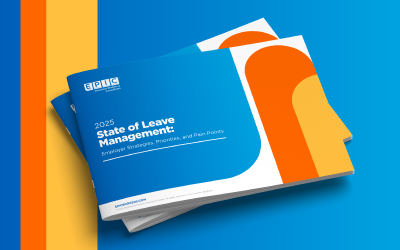EMPLOYEE BENEFITS
The COVID-19 Pandemic Didn’t Create a Mental Health Crisis, It Exposed It
If you’ve been operating in the workplace wellness field for any part of the past decade you’ve likely observed firsthand how mental health affects an organization’s culture and its bottom line, particularly in the areas of absenteeism, presenteeism, lost workdays and benefits decisions.
Viewpoints from Craig Schmidt
Employees have been identifying stress and anxiety in employee wellness and culture surveys for years.
Companies have responded with a passive approach to this feedback, a finding that was supported by the results from our Mental Health and Wellbeing Pulse Survey. A passive strategy will no longer work. We need to understand the current global pandemic isn’t creating a mental health crisis – it’s exposing one that’s been in hiding.
Key statistical takeaways from a 2021 Mental Health America report found that 19% of adults experienced a mental illness and 24% of adults with a mental illness reported an unmet need for treatment.
There’s also a clear link between mental and physical health that can’t be ignored.
The National Alliance on Mental Illness (NAMI) found that “people with depression have a 40% higher risk of developing cardiovascular and metabolic diseases than the general population” and the Centers for Disease Control and Prevention (CDC) found “people with diabetes are two to three times more likely to have depression than people without diabetes” and 20% more likely than those without diabetes to have anxiety. Johns Hopkins Medicine found a near 50% of individuals with Multiple Sclerosis (MS) have depression and/or anxiety and are three to four times more likely to experience depression than the general population.
Now, more than ever, the workplace can make an impact on mental and physical health outcomes through education and by providing support for mental illness.
Start by fine-tuning your communications:
- Create an environment of support and understanding to break down false stigmas and barriers that prevent individuals from seeking the help they need
- Avoid using clinical terminology when communicating your benefits and support offerings – as an organization, you are not looking to label your employees
- Discuss utilizing the Employee Assistance Program (EAP) and behavioral health benefits proactively – get your employees accustomed to the program so when a crisis does arise they already have an established connection with the tools
- Train your frontline supervisors and managers to identify and address employee issues and refer to and promote the services your organization offers for mental health
Make sure to analyze and enhance your mental health tools and resources:
Employee Assistance Programs
- How many sessions per issue is your current plan offering and can the plan offer more?
- What is your EAP’s approach to support – do they offer concierge services to connect employees to the care they need?
- Does your EAP offer an integrated approach; in-person, virtual, telephone and text options, coaching, self-paced programs, or mindfulness and meditation practices?
Medical Benefits
- Does your behavioral health provider offer a one-stop-shop where employees can access all tools on one platform or do they need to navigate multiple websites to access care?
- Are you offering Telehealth services and does your offering include behavioral and mental?
- What are your copays and deductibles for behavioral health – can you make these more employee-friendly?
Organizations shouldn’t fear the mental health conversation with their employees.
This is an opportunity for you to create a real impact and build a healthy culture that expands beyond the workplace and into the community. As you’re reviewing your current benefits strategy, be sure to do a deeper evaluation of your mental health offerings and highlight anything you would like to include or emphasize more next plan year.
EPIC offers these opinions for general information only. EPIC does not intend this material to be, nor may any person receiving this information construe or rely on this material as, tax or legal advice. The matters addressed in this article and any related discussions or correspondence should be reviewed and discussed with legal counsel prior to acting or relying on these materials.
Related Content
Products
Employee Benefits Consulting
Our dedicated benefits team is focused on delivering better outcomes – to both your benefits program and ...
Products
Wellbeing & Health Management
Our consultants help you create a strategy around health management that will impact your culture and your ...
Products
Communications & Engagement
Our Communications & Engagement team develops effective campaigns that enhance workforce awareness and ...



